The ambition of COSMICS is to develop a modeling platform around molecular spintronics and general concepts for efficient strategies to optimize the magneto-transport properties of materials and devices.
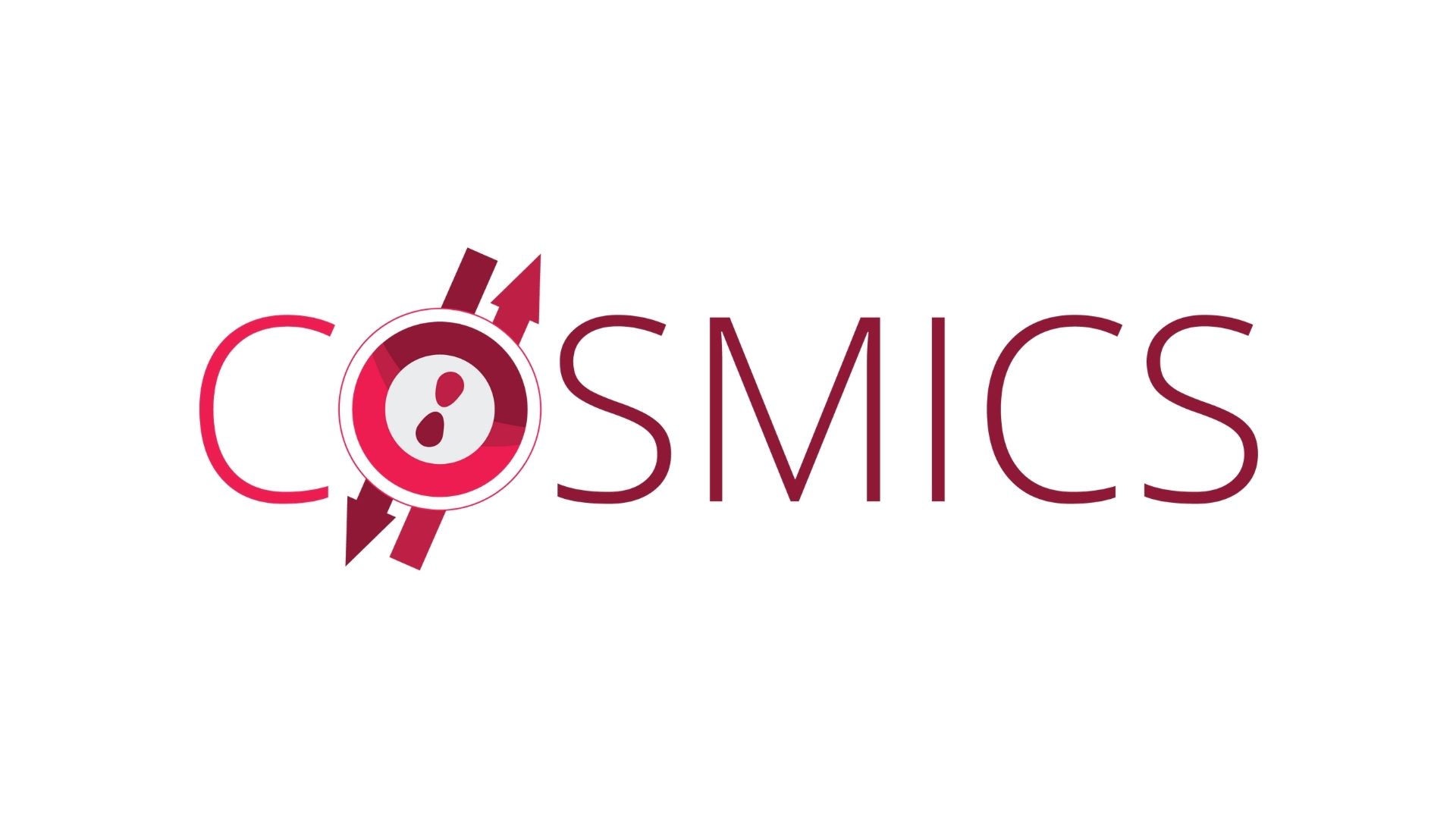
COSMICS is the result of a collaboration between chemists, experimental physicists and theorists from France (CEA/Université Paris Cité), Denmark (DTU, Synopsis), Germany (University of Kiel) and Spain (University of Valencia).
This project has received funding from the European Union under the “Horizon 2020” research and innovation program.
A European project driven by modelling
Cosmics was born from a collaboration between European experimentalists and theorists, specialists of molecular spintronics. It brings together six teams of physicists and chemists, including a software development company.
The COSMICS project is driven by theoretical and computational modelling. It aims at providing state-of-the-art and user-friendly modelling tools to a broad scientific academic and industrial community. COSMICS’ ambition is to develop a modelling platform around molecular spintronics and general concepts for efficient strategies to allowing to optimize the magneto-transport properties of materials and devices.
An interdiscipinary approach
The project is based on an interdisciplinary collaboration that involves expertise from theory-modelling groups, a software company, as well as experimental physicists and chemists. The approach will be to set up the basis for new spin-based nano-devices paradigms and materials with robust and enhanced properties that will fuel new ideas in the field of molecular spintronics.
Concepts and Tools in Molecular Spintronics
The novelty of the project is to combine and develop the most up to date modelling tools with cutting-edge well-controlled and calibrated experimental methods in order to unravel the fundamental mechanisms governing the magneto-transport properties in molecular spintronic systems. The modelling tools developed will further be integrated as a molecular spintronic toolkit into a user-friendly software proposed by a fast growing software company specialized in developing digital applications for the atomistic simulations of materials for technology development.
Have you ever heard about electron spin and its role in magnetism?
How can we use magnetic molecules and play with their spins?
How can we integrate magnetic molecules into electronic components?
How can quantum modeling help us understand existing materials and design new ones?
Find the answers in the video :
Project members : Cyrille Barreteau, coordinator – Service de physique de l’État condensé (CEA), Amandine Bellec – Laboratoire Matériaux et Phénomènes Quantiques (Université Paris Cité), Mads Brandbyge – DTU Physics, Troels Markussen – Synopsys Denmark, Eugenio Coronado & José Antonio Real – The Institute of Molecular Science (University of Valencia), Richard Berndt & Manuel Gruber – STM Group (University of Kiel).
Read more
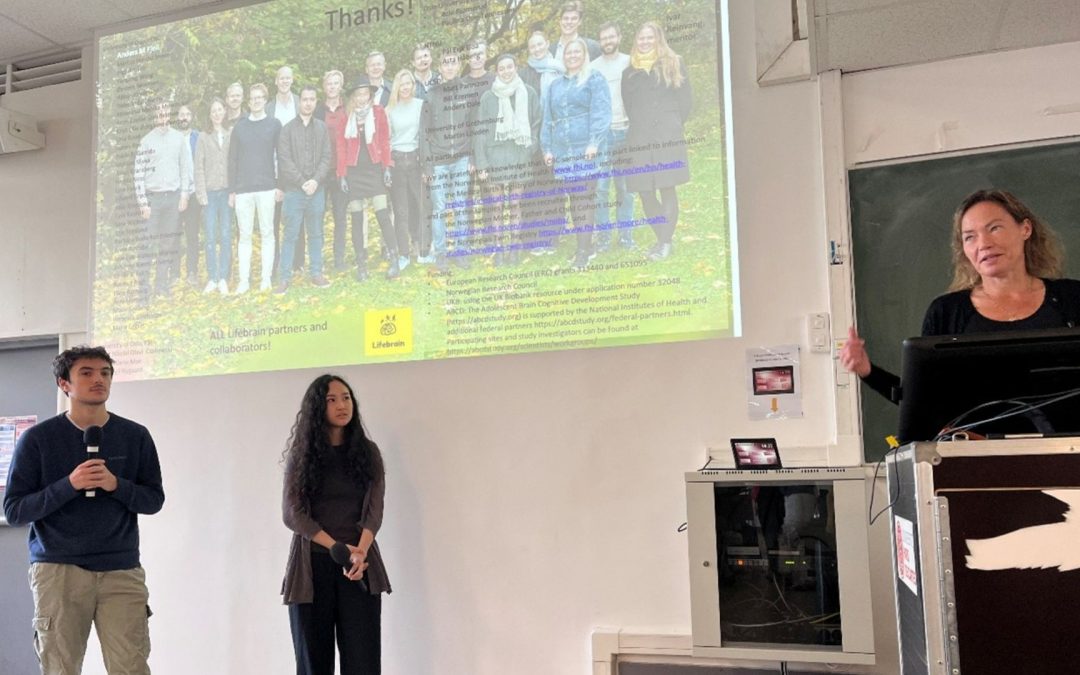
INC Day 2025: an international scientific day dedicated to neuroscience
The Neuroscience and Cognition Institute of Université Paris Cité (INC) organized a new edition of the INC Day, focused on neurodevelopmental trajectories. A key partner of the event, the Graduate School Neuroscience invited its first year and second year master...
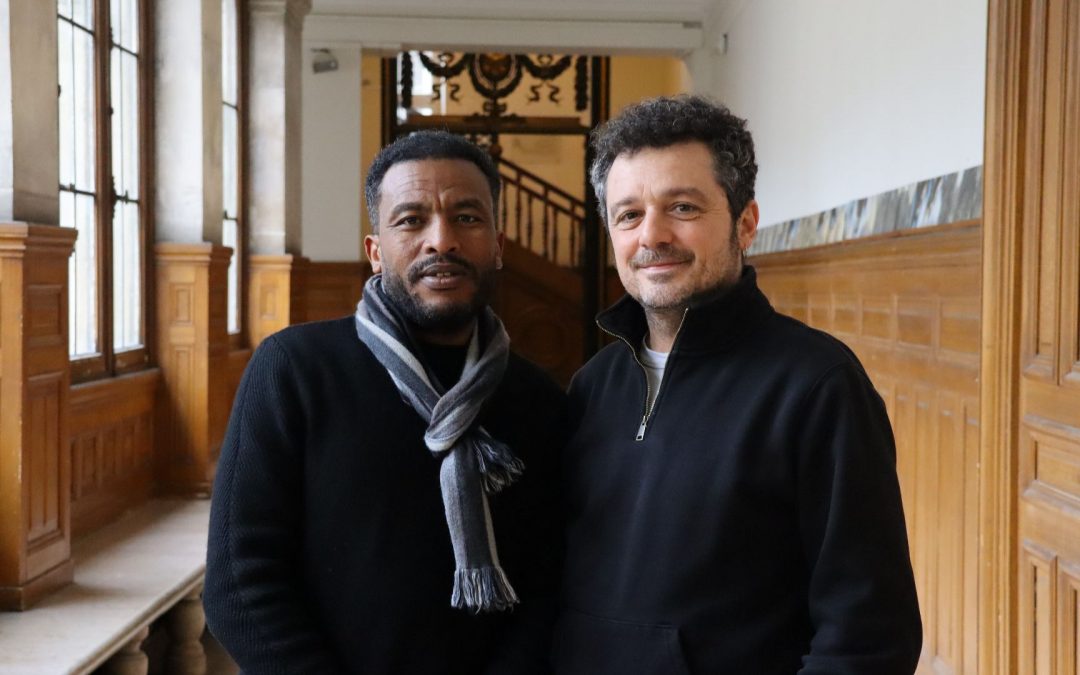
Abraha and Pierre: A Friendship to Preserve the People’s Memory of War
In Paris, two historians’ paths crossed. One had just arrived from Ethiopia, carrying notebooks filled with daily observations written during the war in Tigray. The other, based in France, is a specialist of Ethiopian modern history. From this encounter, a partnership...
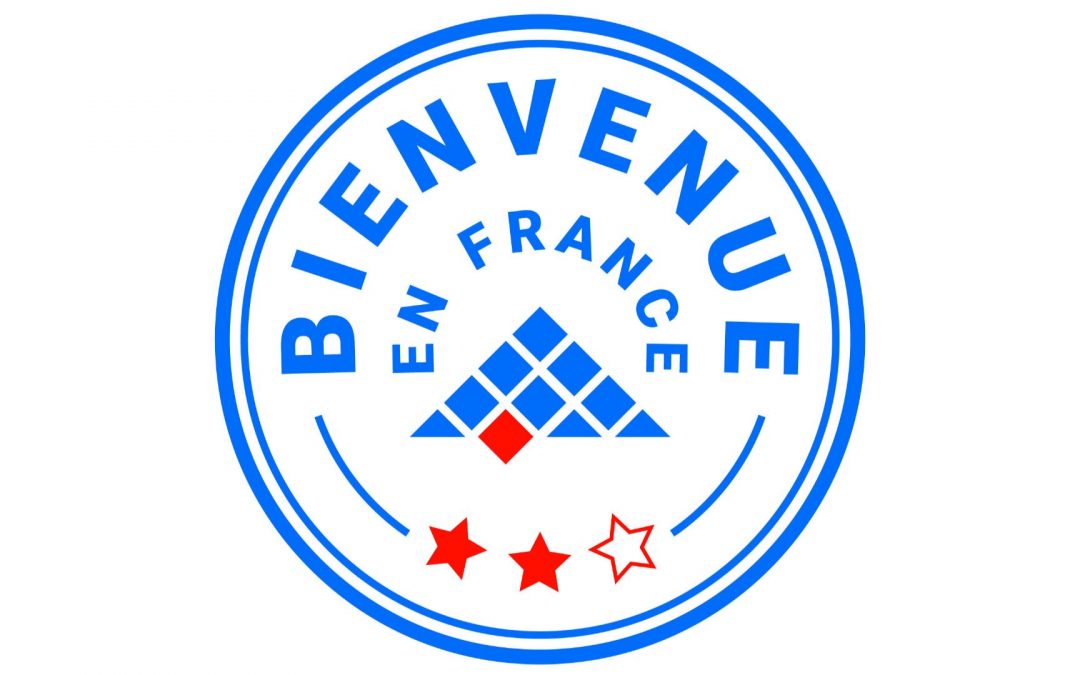
Université Paris Cité awarded the “Bienvenue en France” Label
On 11th December 2025, Campus France awarded Université Paris Cité the “Bienvenue en France” Label, Level 2, recognising the university’s commitment to offering a high-quality welcome for international students. The "Bienvenue en France" Label Granted for a period of...
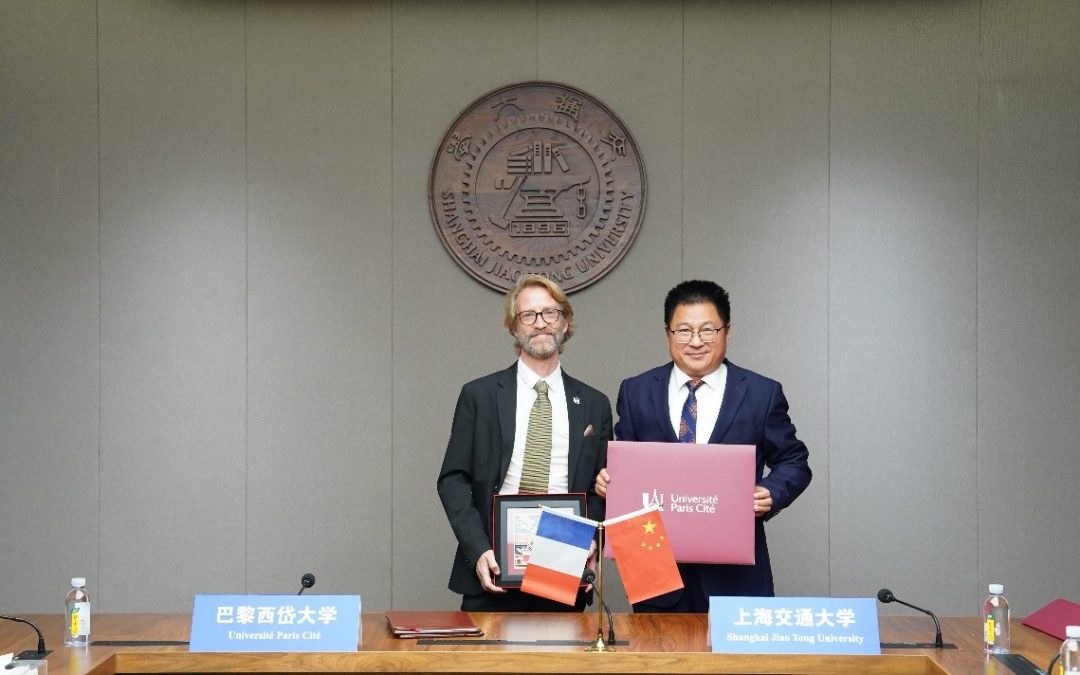
Université Paris Cité strengthens its cooperation with Shanghai Jiao Tong University
Université Paris Cité and Shanghai Jiao Tong University (SJTU) sign a new cooperation agreement and a mobility agreement aimed at expanding a long-standing partnership, initially focused on medicine, to all academic disciplines.Antoine Kouchner, vice president of...
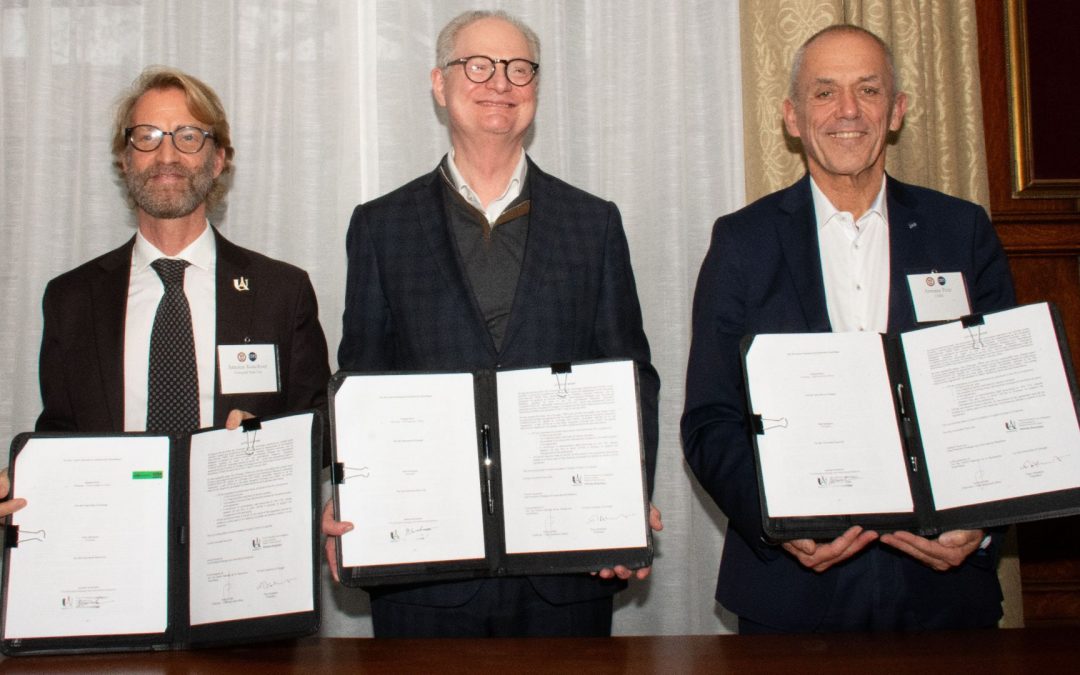
UPCité, UChicago, and CNRS create two international laboratories
On November 19, 2025, Université Paris Cité, the University of Chicago, and CNRS officially announced the creation of two international research laboratories (IRLs): HumanitiesPlus and Particle Physics and Cosmology.Antoine Kouchner, vice president of International...
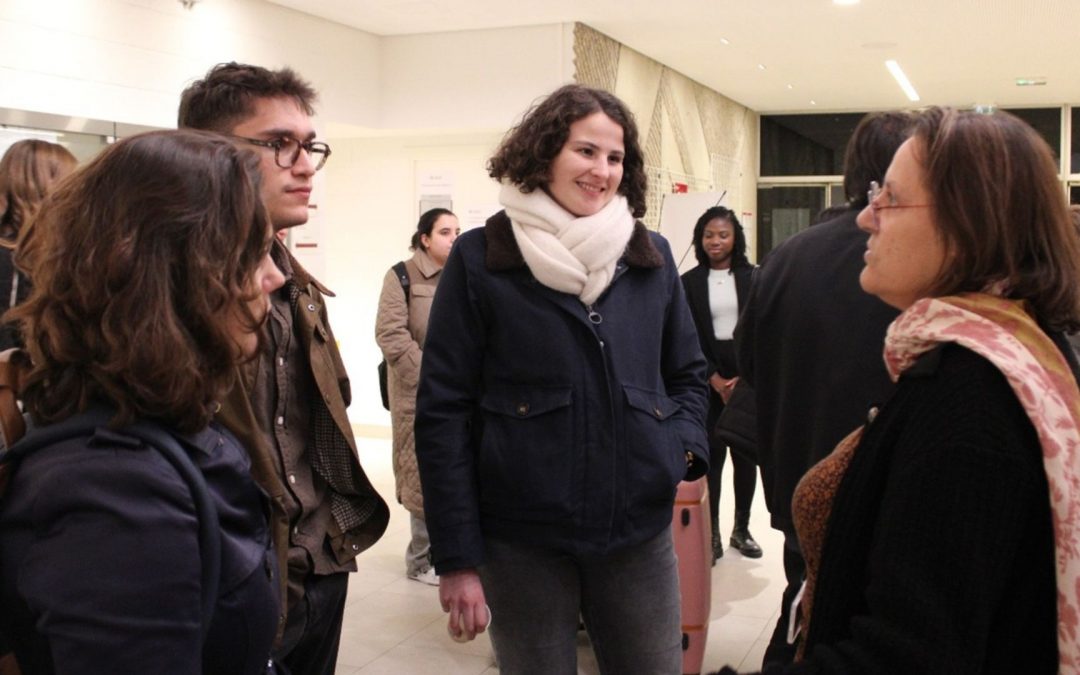
“Open UE”: looking back on an interdisciplinary adventure organised by the Cardiovascular Sciences Graduate School
The “open UE”, launched by the Graduate School Cardiovascular Sciences, brought together researchers, clinicians, and experts from diverse fields for a week to explore major issues in biomedical and translational research. Open to all students across the 29 Graduate Schools of Université Paris Cité, it offered a unique space for learning and interdisciplinary exchange.
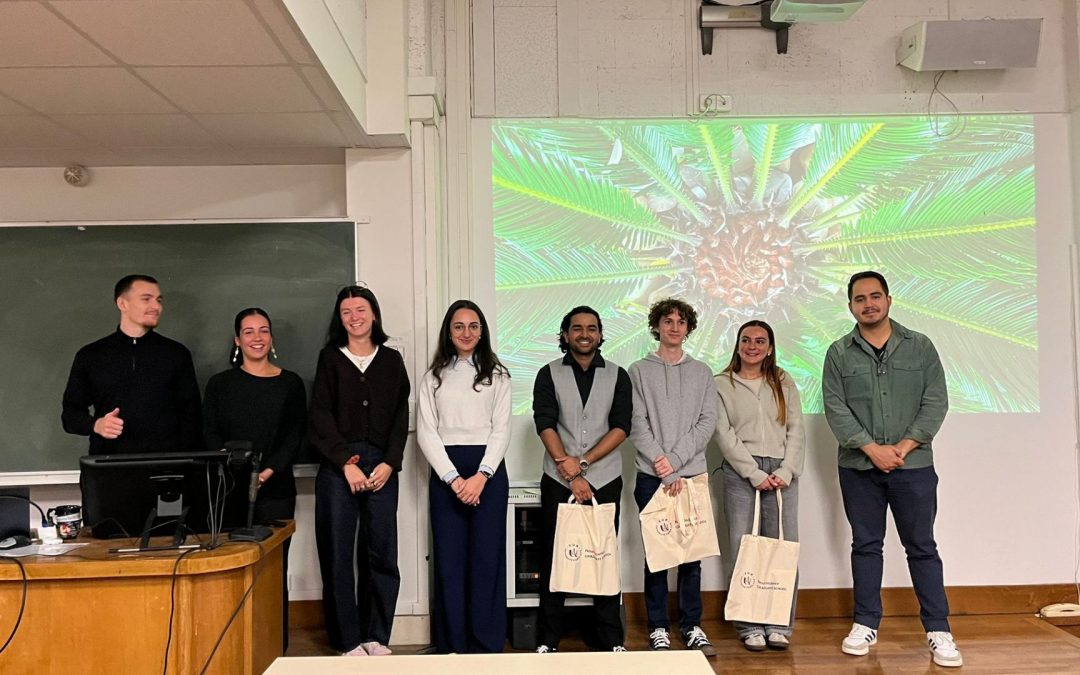
Scientific event: the Neuroscience Graduate School highlights its young researchers
The Neuroscience Graduate School held the third edition of its scientific event, giving students from across the Graduate School the opportunity to present their research work. This now-established meeting has become a key moment for bringing together Master’s...

Call for applications for US Visiting Faculty 2026-2027
Committed to supporting research at the highest level through their partnership, Université Paris Cité and Sciences Po are calling for outstanding applications for visiting faculty from the United States. Apply before January 30, 2026.Candidates selected under a...
![[SMARTS-UP Graduate Schools call for applications] International scholarships for Master’s students](https://u-paris.fr/wp-content/uploads/2025/11/SmartUP_1920-1-1080x675.jpg)
[SMARTS-UP Graduate Schools call for applications] International scholarships for Master’s students
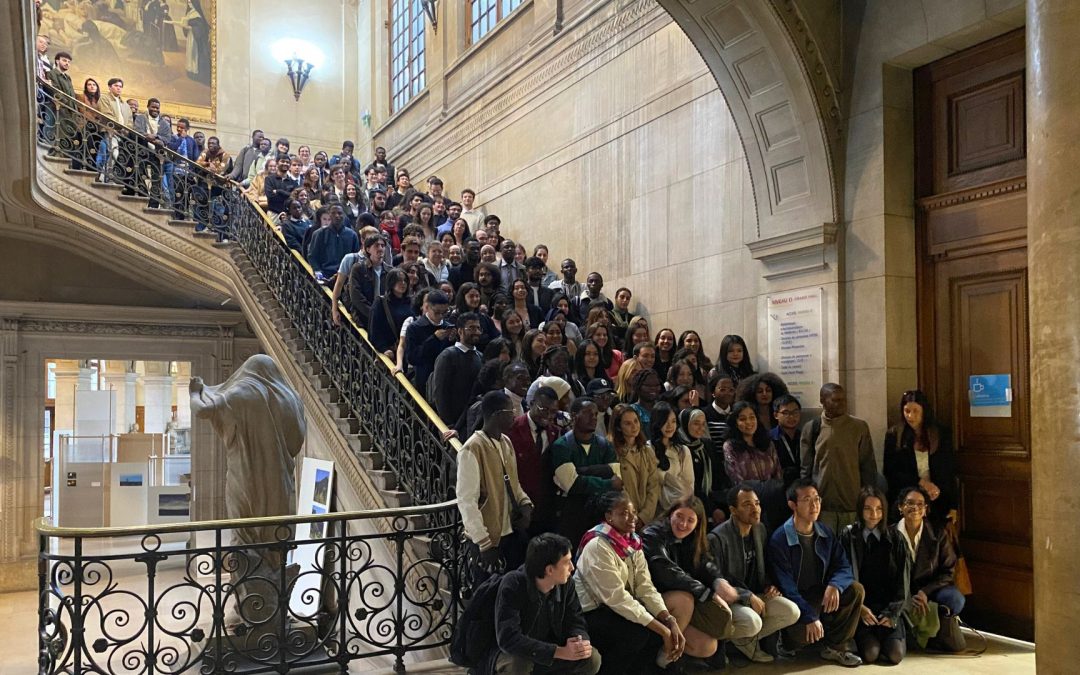
Highlights from the 2025 SMARTS-UP Mobility Grant Awardees’ Welcome Event
The SMARTS-UP project, which led to the creation of the 28 Graduate Schools at Université Paris Cité, plays a key role in the internationalization of research-based education. Each year, it supports top students from around the world through the awarding of mobility...
